Last year was rough for so many people in the world. Although theaters were mostly closed and live events were put on hold, the 2020 movies and TV shows got folks through the difficult times while they were stuck at home.
Like many, the Vital Thrills writers stayed at home and have now shared what they enjoyed the most (some titles were watched via press screeners). You can check out their top 2020 movies and shows below, and be sure to post your picks in the comments!

VITAL THRILLS’ TOP 2020 MOVIES AND TV SHOWS
JENNA BUSCH
10. Great British Baking Show
The lockdown edition of this show upset some people, as did the inclusion of new host Matt Lucas, though I absolutely love him and his chemistry with Noel Fielding. The show worked in a “self-contained biosphere,” staying quarantined and away from their families. Yes, it gave a different vibe to the show, but everything is different this year.
This series, full of lovely people who help each other and compete for nothing more than a cake plate and some flowers, is soothing to my soul. It’s wonderful to know that this show will go on, giving me hope for humanity when everything else in the world is taking that hope away.
9. Late Night with Seth Meyers/The Daily Show with Trevor Noah/The Late Show with Stephen Colbert
Yes, there are three shows here. Late-night talk shows are what kept me going through 2020. The monologues, the acknowledgment of the absurdity of our government, the health crisis, and everything else that has made this year monstrous made me feel a little less like I was going crazy. They also helped me laugh at the news, even when it made me want to cry.
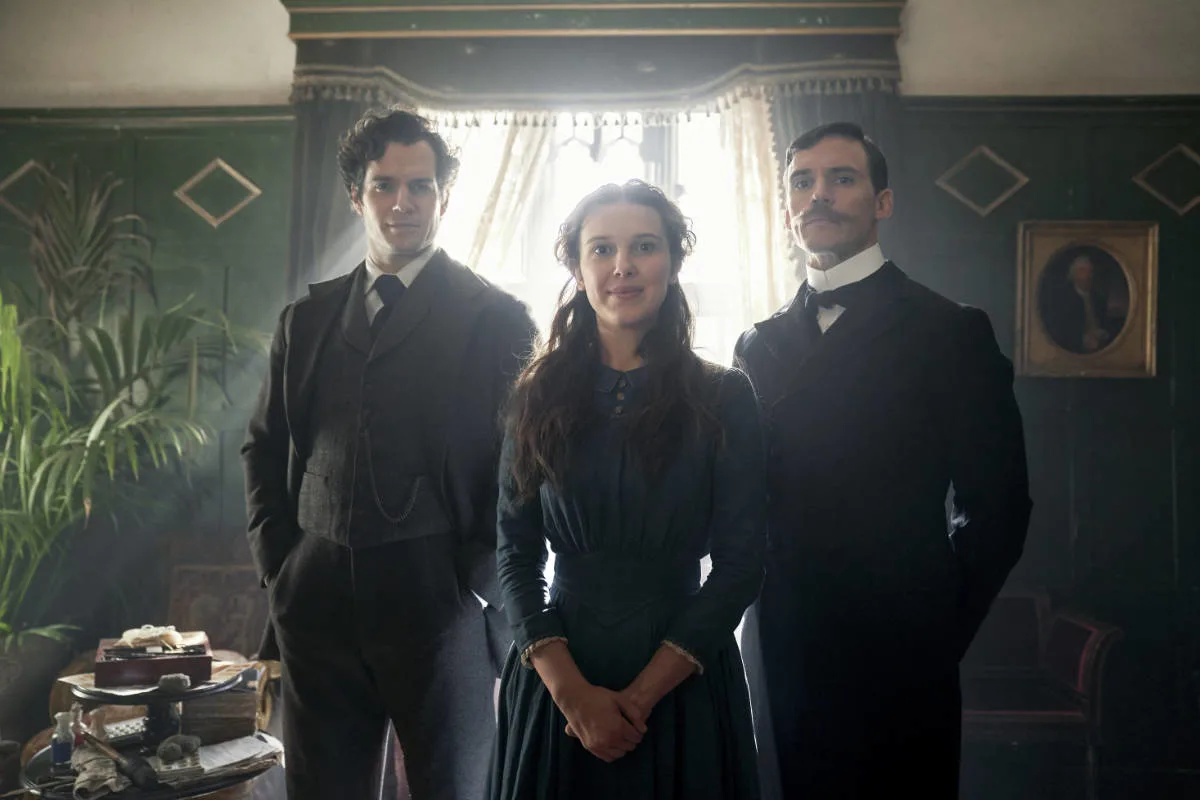
8. Enola Holmes
This Netflix film starring Millie Bobby Brown is a lovely confection of a story that shows a brilliant young woman learning to stand on her own. It’s just delightful. It’s a light watch and has a fantastic cast, including Henry Cavill, Sam Claflin, Fiona Shaw, Adeel Akhtar, and Helena Bonham Carter.
It’s… effervescent. It bubbles with joy. Maybe it was just what I needed this year. I also adore the way the production made use of breaking the fourth wall. That can seem very gimmicky sometimes, but here it just added to the fun.
7. Soul
Here’s another one that isn’t surprising at all. Though I wasn’t sold on the heartwarming story when I saw the first third of the film for an early press day, the payoff at the end, the lesson of what getting to live life means, was something that I wouldn’t soon forget. If you’re wondering about the praise for this film, it’s definitely deserved.

6. The Mandalorian Season 2
You’re not surprised that I added this to my list, are you? Whatever you think of the changes made in the Star Wars universe from the latest trilogy and the two standalone films, you probably had your faith restored while watching this simple Western with the cutest cast member in history. Din Djarin (Pedro Pascal) and his journey have been so satisfying.
I’ve loved watching him expose his feelings/face as he grows to love the little green guy. The cameos this season didn’t feel like fan service so much as a deep connection with a fairytale that we’ve all loved for so long. The final episode… it’s going to take me a long time to get over the beauty of it. 2021 will be a year of speculation, and I’m here for it.
5. What We Do in the Shadows Season 2
Never have I gone from “this is so dumb” to “I’ve never laughed so hard” so quickly. Yeah, it’s a silly premise, a documentary about vampires, but it’s so funny that my face was sore from laughing the day after I binged this. Superb Owl Party, you guys.
I now routinely yell “bat” when I get frustrated about the dead battery in my car. (Not exactly driving anywhere these days.) If you’re having a crappy day, do yourself a favor and binge this show. Trust me.
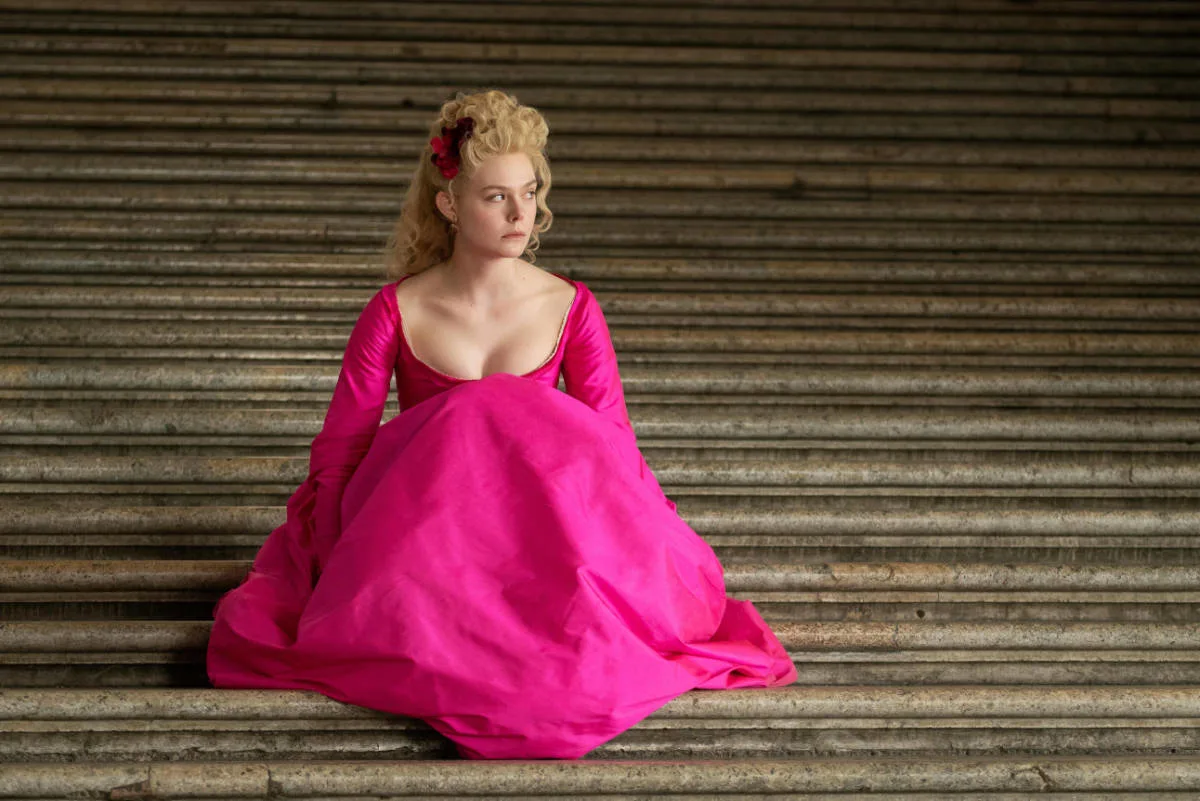
4. The Great
This show was a wild ride. It never claims to be the true story of Catherine the Great, and it gives us an absurdist look at one of the most powerful women in history. She’s a young woman, married to an insane ruler, learning the art of political strategy in a way that will make you laugh and break your heart. Elle Fanning is brilliant as Catherine, and Nicholas Hoult turns Peter into a figure that will simultaneously make you hate and adore him.
If you haven’t watched it yet, that sounds odd, but trust me. You’ll go from wanting to punch him in the teeth to giving him a hug within minutes. I’m not proud of feeling like that about a character like Peter, but there it is. I’d be shocked if you didn’t feel the same.
3. The Crown
The fourth season of this series about the British royals was a standout. Olivia Coleman and Tobias Menzies as Queen Elizabeth and Prince Phillip were powerful, which was expected, just as Helena Bonham Carter’s Princess Margaret was. The revelation for me was Emma Corrin as the young Princess Diana.
We saw not only the alienation that we all experienced during real-life events but also the fact that she was difficult in her own right. Corrin really gave a sense of what it must have been like to join such a cold family as a warn and somewhat unmoored young woman. Another shining star was Emerald Fennell (also the writer/director of Promising Young Woman), who plays Camilla Parker-Bowles.
It’s a controversial take, apparently. I watched this on my computer screen, not in a theater. Sure, there are issues with the plot, but ultimately, Wonder Woman 1984 was a light fairy tale with a lovely message, and I’m sorry, but that’s absolutely what I needed during this horrible year.
Gal Gadot is wonderful as always, and I loved seeing Kristen Wiig in this role. Don’t bother yelling at me on Twitter. Your voice will be lost in the sea of people angry that I liked something that they didn’t.
It is impossible to overstate how much I love this film. The trailers make you think you’re in for a revenge horror film, but the truth of the narrative is a young woman, consumed by grief, whose life has stopped dead in its tracks. She knows it on some level and decides to give some “nice” men a wake-up call about who they really are and how they hurt women.
The ending is going to have you debating for days. This was the last film I saw in a theater before lockdown. It’s playing in theaters now, but I highly recommend that you don’t go, and wait for this to stream. Please stay safe.
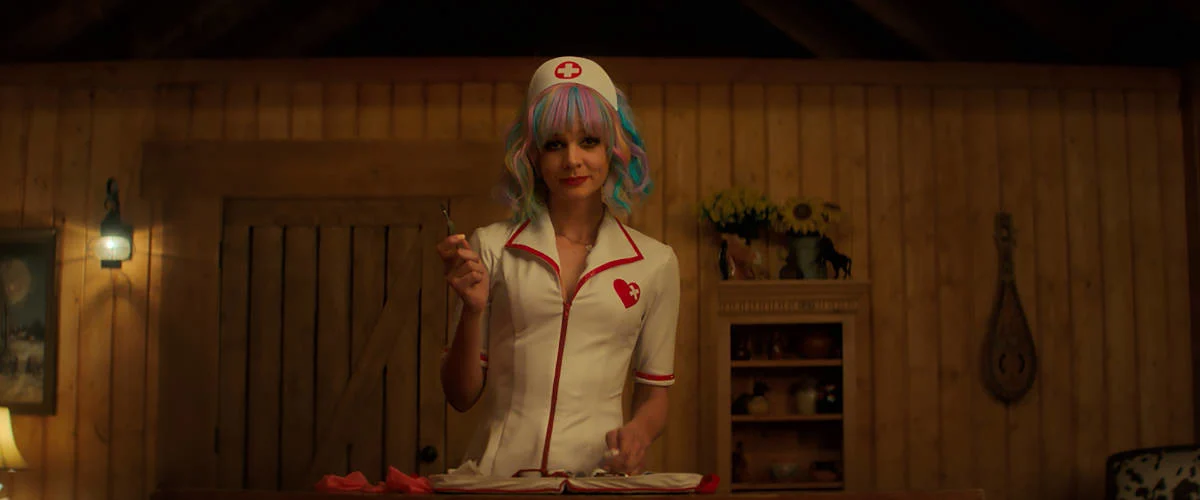
ALAN CERNY
TOP 2020 MOVIES
10. Spontaneous – First-time director/longtime screenwriter Brian Duffield had a pretty terrific year, with the writing credit for Underwater getting modest box office success before All This shut everything down, and his charming romance-with-giant-bugs film Love and Monsters hitting streaming last summer.
But it’s Spontaneous that may stand the test of time – teenagers, for no discernible reason, start exploding, and Katherine Langford and Charlie Plummer fall in love in the midst of it. Spontaneous starts light, but then the emotions come in strong, and the movie turns into something quite poignant and very reflective of the year we all just went through.
9. One Night in Miami – On the night of Cassius Clay’s (Eli Goree) defeat of Sonny Liston and Clay’s announcement that he was joining the Nation of Islam, One Night in Miami (based on Kemp Powers’ stage play) wonders what if Clay, Malcolm X (Kingsley Ben-Adir), Sam Cooke (Leslie Odom Jr.) and Jim Brown (Aldis Hodge) had gotten together for a last quiet moment before history swept all of them up?
Kemp Powers’ script is a firecracker, and with this and his co-directing of Soul, he’s having an amazing year. Regina King directs sure and true and gives a cinematic flow to Powers’ words. All the acting is uniformly great, but props must be given to Ben-Adir’s Malcolm X, a man full of passion and love for his friends but compelled by a higher power to not only move forward but to inspire these men to use their own power for the greater good.

8. The Invisible Man – Leigh Whannell’s follow-up to Upgrade is an instant horror classic, using the familiar tropes of the famous Universal Monster and turning it into a timely, resonant take on the iconic story. When an abusive tech mogul dies, he leaves all his money to his abused girlfriend (Elizabeth Moss).
But when strange instances and circumstances begin surrounding her, it’s unclear whether she is going insane or if more sinister forces are at work. Moss is terrific, and so’s Whannell’s direction: while we know the jump scares are coming, Whannell uses tension like a surgeon with a scalpel, knowing when to deliver the cut.
7. Beastie Boys Story – Spike Jonze films the remaining Beastie Boys retrospective show after the death of Adam Yauch and brings not only his idiosyncrasies as a director but also his broad heart into the mix. The result is a beautiful live-concert experience that charts the growth of three childish boys forced into mega-stardom and who grow into musically innovative, mature men.
Triumph, failure, tragedy, and glory, all in the space of two hours. I’ve loved the Beastie Boys since I was a teenager; I love them more now, as they grew into true artists, wiser but still holding that creative spark.
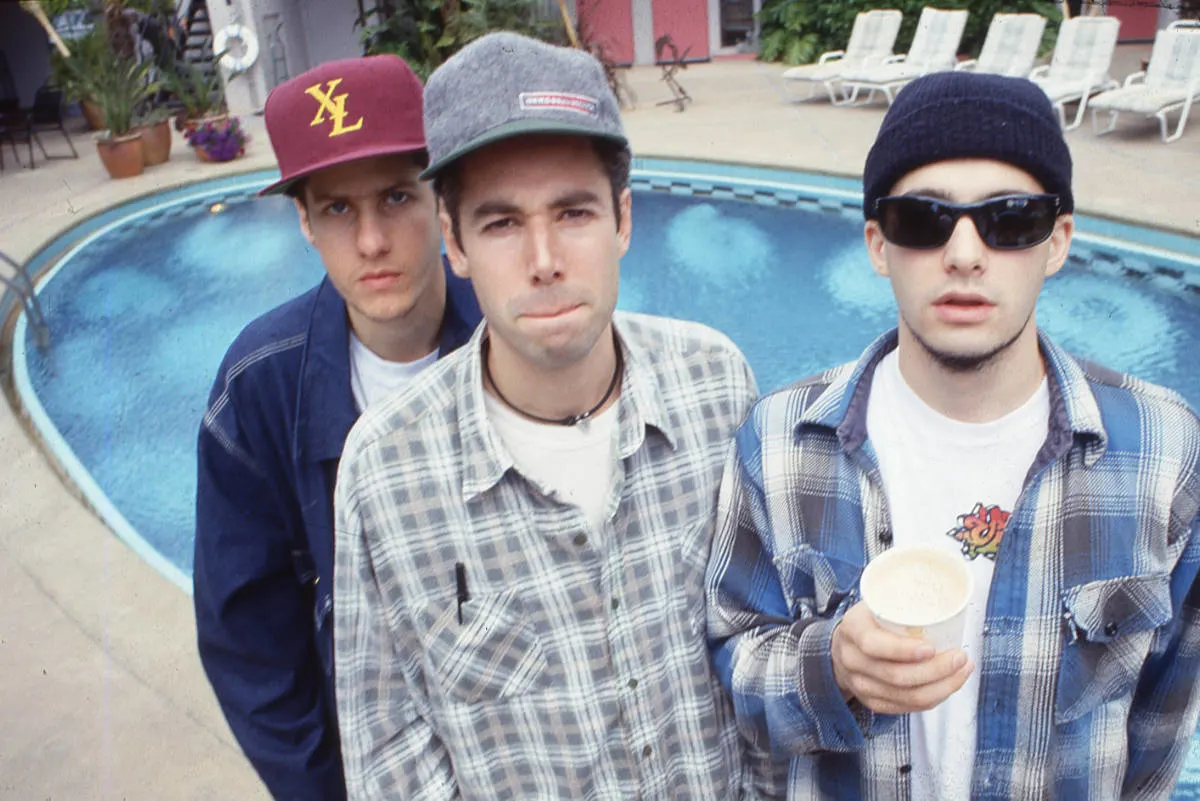
6. Da 5 Bloods – Spike Lee’s post-Vietnam saga is not only an exploration into that war but the Black man’s place in it and what the war did to those who experienced it first-hand. Full of great performances, Delroy Lindo, as a gold-obsessed MAGA-hat-wearing PTSD-suffering former soldier, gives a performance for the ages.
One of the final performances of Chadwick Boseman, and with this film and Ma Rainey’s Black Bottom, we say goodbye to a tremendous actor.
5. Sound of Metal – Another great performance this year comes from Riz Ahmed as a heavy metal drummer who over the space of days loses all hearing. Sound of Metal paints an aural tapestry of loss and change as we journey with Ahmed, who tries to do everything in his ability to get back what he lost. On paper, this wouldn’t at first blush seem very cinematic, but director Darius Marder makes Sound of Metal into a full experience.
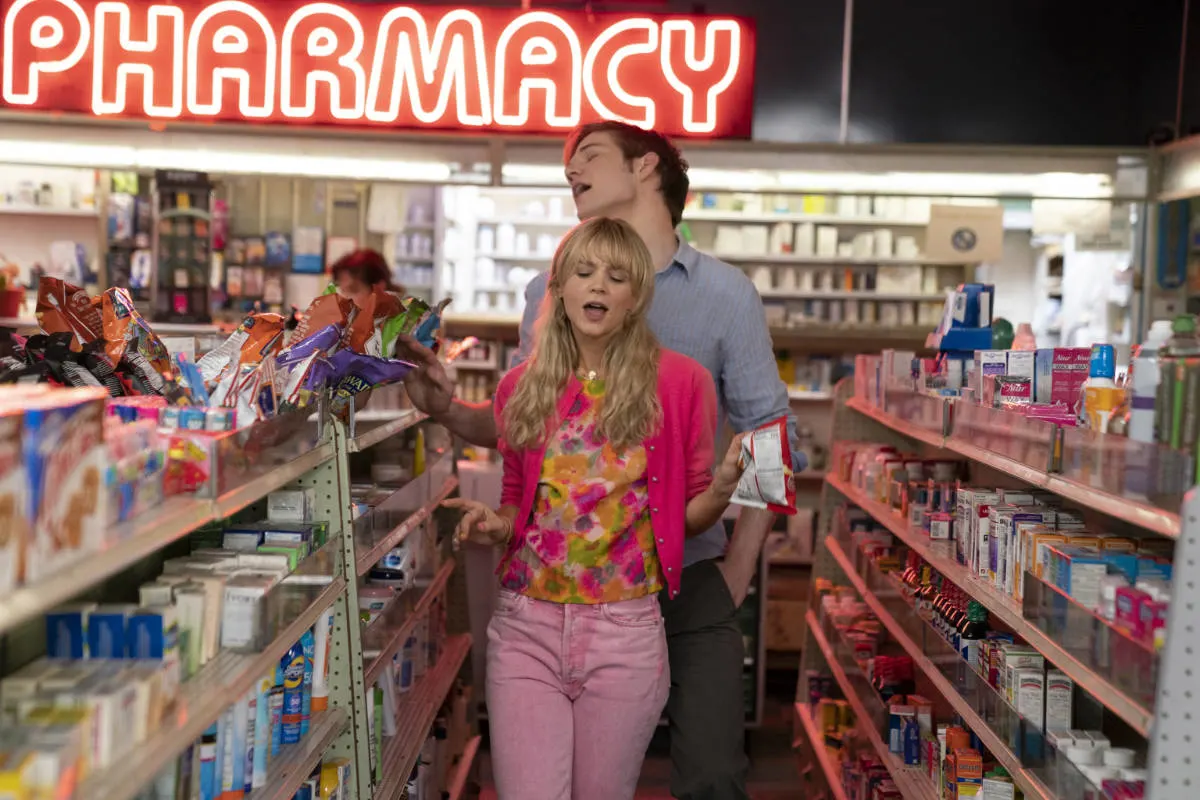
4. Promising Young Woman – Only time will tell how this film will be received by those who see it, but this is not a film to be taken at face value. Cassie (Carey Mulligan) fakes drunk at clubs, then when the unsuspecting “nice guy” brings her to their home, she pounces. There is a method to her madness, but when she begins a relationship with a former schoolmate, she cannot make peace with a horrific, tragic past that she refuses to get past.
Mulligan is electric, and the film’s final act will divide audiences for certain. To me, Cassie’s revenge is a scream across the darkness, a scream for an acknowledgment of her pain and grief. Of all the films I’ve seen this year, this one, more than any other, refuses to leave my mind. In years to come, I think Promising Young Woman, of all of this year’s films, will be the one still sparking discussion and argument.
3. Soul – Pixar, and Pete Docter in particular, have a way of breaking down abstract concepts and ideas into digestible but compelling stories. Soul charts nothing less than the human experience: where we come from, where we go, and all the stuff in between.
It all sounds pretentious on paper, but Docter and co-director Kemp Powers (One Night in Miami) bring it all together with elegance and grace. Jon Batiste’s jazz compositions spice the film, and Trent Reznor and Atticus Ross provide an amazing score. One of Pixar’s best, and that is saying something.

2. Possessor – Like Soul, Brandon Cronenberg’s film Possessor deals with questions of identity, but unlike the Pixar film, Cronenberg dives into the horrific aspects of a person split in two. Andrea Riseborough is a corporate assassin who leaps into the body of a young employee (Christopher Abbott), but finds that her task to murder the head of a rival corporation becomes complicated.
This is Brandon Cronenberg’s second film, but he has confidence in his work and the capacity to fill his film with as many ideas as he can fit in there. Both Riseborough and Abbott are wonderful here, and Possessor pulls no punches. There are images here that will disturb, and Cronenberg refuses to look away. Wildly imaginative, Possessor will not leave the mind.
1. Nomadland – Not all those who wander are lost. Not all those who are still are at rest. And not all those without tears have finished mourning. Fern (Frances McDormand), after the loss of her husband and her community, now drives across the country in her van, without roots to plant, living a life seemingly on her terms.
She forms relationships wherever she goes, but she refuses to build something that lasts. Because for Fern, nothing ever lasts – not family, not home, not a job, not the people who come into and out of her life. Director Chloe Zhao knows the power of silence as well as majesty and quietly builds a life in between the moments we see.
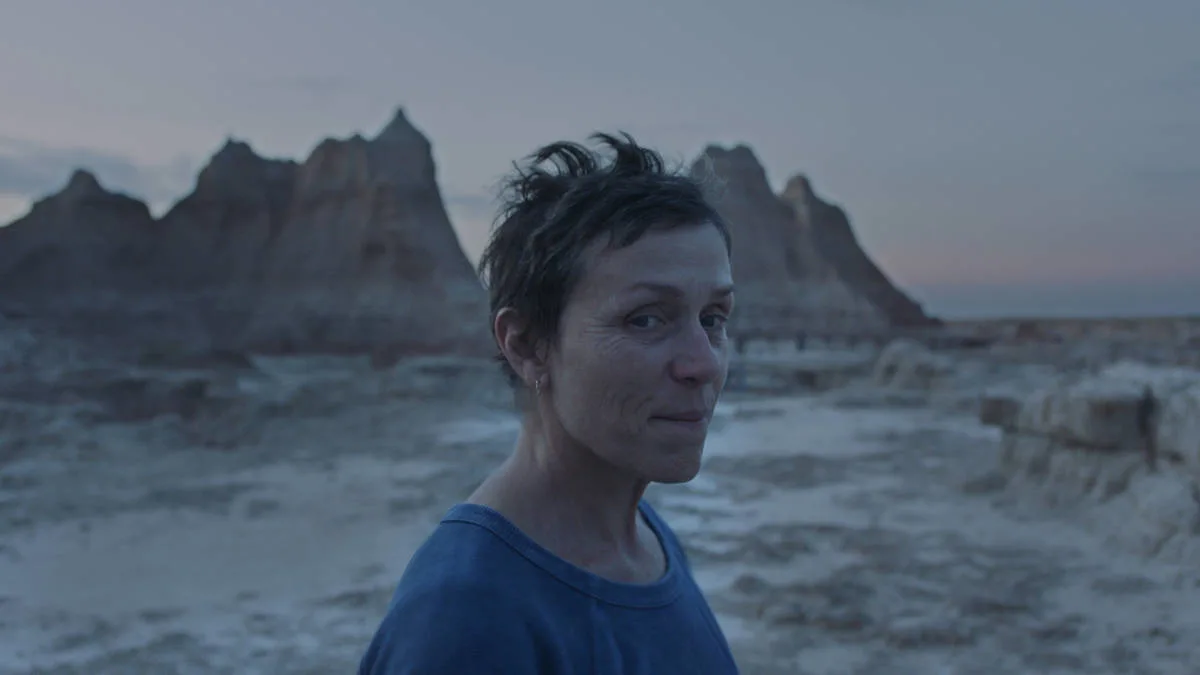
McDormand doesn’t deliver a showy performance; instead, she puts her work and Fern’s grief inside those silences and into her eyes. Nomadland, filmed in several locations with real American nomads, almost feels like a documentary at times, showing us an America left behind and ignored by the rest of the country, whether through guilt or simple negligence, but this is not a film about judgment.
We are all grieving for something, a time now gone, and Fern’s journey in Nomadland is not necessarily a journey to find it out there on the road, but somewhere inside her. This is the year’s best film.
BEST TV SHOW
Ted Lasso – Apple TV+’s Ted Lasso is whimsical, charming, and funny, and then the emotions and the heart sneak in between the laughs and the whimsy, and you suddenly find yourself in tears. Jason Sudeikis is an American football coach brought into England by the owner to coach a soccer team to get back at her ex-husband and ruin the team that her ex-husband loves. But it’s not so simple when Lasso, perhaps the kindest man ever born, begins to form relationships with the owner and the players.
Ted Lasso is unashamed of its emotions, and what could come across as cloying and overpowering suddenly becomes poignant, moving, and sincere. Ted Lasso’s humor doesn’t undercut the sincerity either, and in an increasingly cynical world, that sincerity plays very strongly. Ted Lasso is by far my favorite television series of last year, and I can’t wait to see more from this show. This was the comfort watch of 2020.

JOSHUA STARNES
First Cow – First Cow charts the unlikely friendship between Otis Figowitz and King-Lu, the most recent arrivals in the Oregon territory. Like everyone else heading out west, they each have a dream of self-determination and prosperity, and like most of the people heading out west, they have discovered that it’s still easier for the haves who can afford to build houses and buy cows while everyone else squats in the mud.
Reichardt doesn’t just make Westerns unlike anyone else but unlike any ever made (and I include Dead Man on that list). They’re unusual enough that more than one viewer has suggested they aren’t Westerns at all beyond being dramas set in the West. But that’s not true.
They are surgical investigations of the Western, peeling away the layers of mythology (both of the genre and the country they grew up in) to reveal something of the real-life people who lived through it and the real drama they were part of.
It is the essence of the story of immigrants – which is the essence of modern America – but more and more the story of modern American life. In that sense, First Cow is more about America than most of its more authentic Western brethren, and in that sense, it is more authentically a Western than any of them.
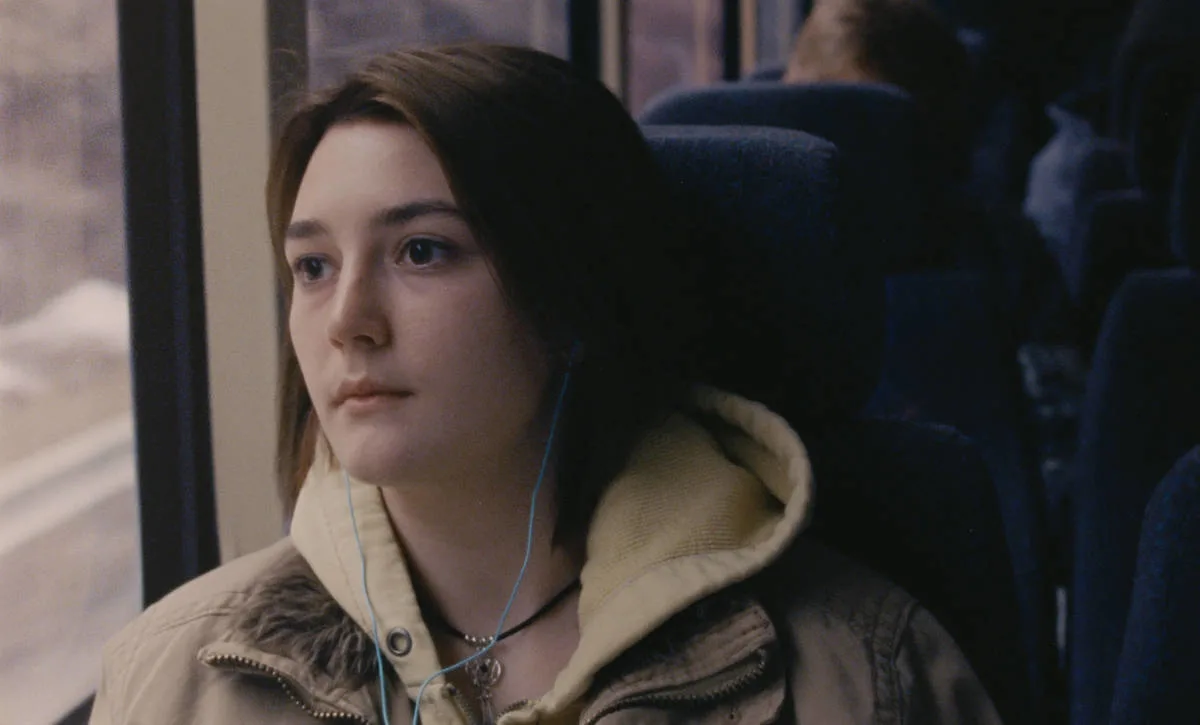
Never Rarely Sometimes Always – When I wrote about Never Rarely Sometimes Always, I said it made the term ‘raw’ seem quaint in its depiction of the modern female experience in a patriarchal society. That is all still true. Never Rarely Sometimes Always follows the increasingly desperate odyssey of Autumn, a teenager with an unexpected and unwanted pregnancy and no support system to help her deal with it.
Braving the wilds of grasping men, merciless bureaucracy, and unfeeling reality, Autumn and her best friend commit to traveling from Pennsylvania to New York City, where teenagers can get abortions without informing their parents.
It is a situation rife with melodrama and speeches and easy villains and clear heroes. Eliza Hittman’s modern travelogue eschews almost all of that, offering a film mostly without dialogue and with drama left in the corners or so obvious in its implications that it doesn’t need a helping hand from the director.
Never Rarely Sometimes Always is an experiential experiment. It wants its audience to feel what its characters feel, not by telling us what they’re going through but by putting us through it with them.
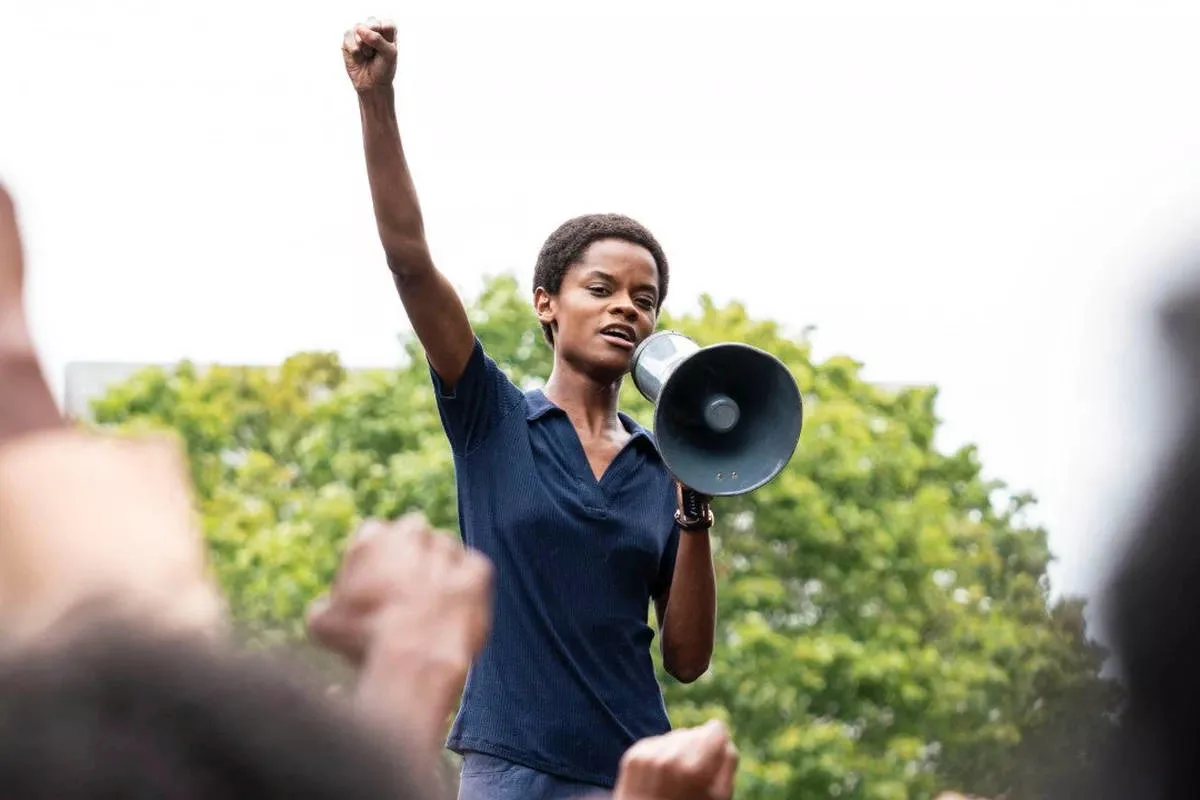
Small Axe: Mangrove – Steve McQueen’s ambitious five-cycle film series about life among Caribbean immigrants in London in the ’60s, ’70s, and ’80s has been fairly compared to Kieslowski’s Dekalog in terms of its far-reaching characterization and complex storytelling within a very specific framework. All of its different pieces take on a unique shape, and in a sense, all of them together deserve to be thought of as gestalt.
But if all are equal, there is definitely a first among equals within Small Axe, and that is Mangrove. Some of that is because it is the most traditional feature film of the bunch, both because it is the only one long enough to easily be labeled as such (many of the others barely reach an hour) and because of its approach to its chosen subject matter.
The Mangrove was a restaurant for the immigrant community in Notting Hill which was routinely targeted by the London Metropolitan Police. When demonstrations against police harassment transformed into a riot (after the police attempted to break the demonstration up), the protest organizers were arrested and placed on trial for inciting a riot as the Mangrove Nine.
Spending as much time setting up the trial and the major personalities who will be involved in it as the trial itself, once it gets to the trial Mangrove becomes a showcase for the depth of McQueen’s talent, ditching much of the classic trapping of studio trial filmmaking to focus on the reality the defendants went through without frills or scenery chewing. And it does so without bitterness or hopelessness even while maintaining a realistic eye on race relations then and now. All of Small Axe is worth watching, but none is more than Mangrove.

Gunda – This has been a year of great documentaries, but none of them were quite like Gunda. Covering a month or so of the life of a mother pig and her new brood, it is the purest form of the documentary either in this year or many recent years. Eschewing the classic nature film form, or even the classic documentary film, Victor Kossakovsky’s Gunda is nothing but life.
Shot in stark black and white with nothing else — no music, no voice-over, no transitions — to distract from the reality of nature, Gunda follows the new mother and the various other farm animals she shares space with (some ducks, some cows, a dog) as they go about their daily lives.
All of modern life is erased and the reality of the planet we actually live on is placed front in center. At the same time, man is never too far from the reality of what is in front of us, even if we only see what he leaves behind, and never more so than in the final moments when Gunda’s babies are taken away to be resold leaving the mother pig alone, searching for them with no idea she will never see them again. Affecting, effecting, masterful.

Nomadland – Before she dives headfirst into the realm of big-budget studio filmmaking, Chloe Zhao took time to deliver a bookend to The Rider, her meditation on loneliness and need. In many ways, Nomadland is similar to a film, even though it approaches its subject from the opposite end, following a nomad by choice rather than circumstance.
Packing herself into her beat-up old van (and away from the lives of her family members scattered hither and yon), Frances McDormand’s Fern roams rural America bouncing through the underbelly of the gig economy but also the responsibilities of roots.
If there is one big difference between this and her previous work, it is the addition of McDormand, who brings obvious recognition (which can sometimes upset this kind of filmmaking) but also the ability to meld high-level acting with minimalist filmmaking. Sometimes, when well-known actors try to dive into this sort of milieu, they stand out without meaning to, always reminding us of who they are even as they do excellent work (Willem Dafoe in The Florida Project comes immediately to mind).
McDormand, however, drops directly into this world as if this were her first time on screen, bringing a life of actual experience to it rather than a simulation of it. Bleakness tinged with beauty (and vice versa), like Gunda (or a modern-day Paris, Texas), Zhao attempts to look at America as it is without tipping her hand as to what she thinks you should feel about her images one or another.

Minari – Steven Yeun is either the best or luckiest former cast member of The Walking Dead. Or both. Rather than taking his turn on a very popular TV show to focus on studio films or network deals, Yeun went looking for smaller films with more complex roles he had never attempted before. After his success as a disinterested narcissist in Burning, Yeun has turned another 180 degrees as dedicated family man Jacob Yi in Lee Isaac Chung’s saga of an immigrant Korean family trying to make a go as farmers in 1980s Arkansas.
As with several other films on this list, Minari is not just about the modern immigrant experience but how it has informed the history of the nation regardless of cultural depictions but also a celebration of the outsider and the need to make sure they are part of the larger group, for them and for us. And it’s a showcase for Yeun who gets better and better with each film.
Promising Young Woman – There may be no more bitter film released this decade than Promising Young Woman. That is not a bad thing. Emerald Fennell’s directorial debut also provides Carey Mulligan with what may be her career-best performance (which is a career that includes An Education and Shame) as Cassie Thomas, the living embodiment of the lasting consequences of sexual assault and a society that normalizes such behavior.
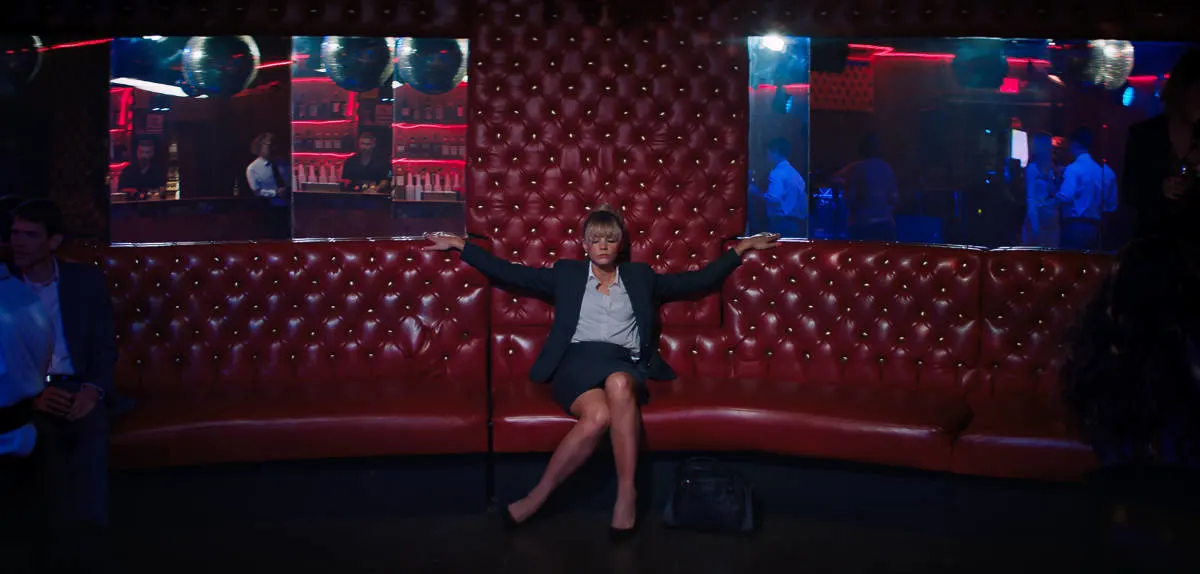
A once-promising young medical student, Cassie now spends her nights hanging out in bars and clubs, feigning near-drunken unconsciousness and waiting for some amoral night stalker to take the bait. Worse than Cassie’s pain, however, is her desire to absolve herself of it and enter some sort of normal life… only for said life to continually upend her like Lucy perpetually yanking that football out from under Charlie Brown.
Mulligan is supported by some astounding cinematography and the year’s most perfect pop score in a film that I described as “a yell, a cry, a scream into the dark about the awfulness of humanity and why we let it go on.” It’s time to hear it.
Dick Johnson Is Dead – If Gunda was the anti-documentary, then Dick Johnson Is Dead is its polar opposite, relishing every filmmaking trick in the book and then some in order to deal with the emotional pain of director Kristen Johnson’s father’s approaching end. Voice over, transitions, dream sequences, death sequences, stunts, effects, false narratives, and fake endings, Dick Johnson Is Dead relentlessly plays with the audiences’ emotions and shows how they are doing so, like cinematic Penn and Teller routine.
It’s also deeply affecting and real, delving into the reality of Johnson’s relationship with her father and family and what his upcoming death will mean for all of them. More importantly and impressively it stares bolding at one of the few remaining taboo subjects of film — the existential dread of aging (and the infirmity that comes with it) — like a man staring directly into the sun. It is as blinding and brilliant as it is saddening and cathartic.
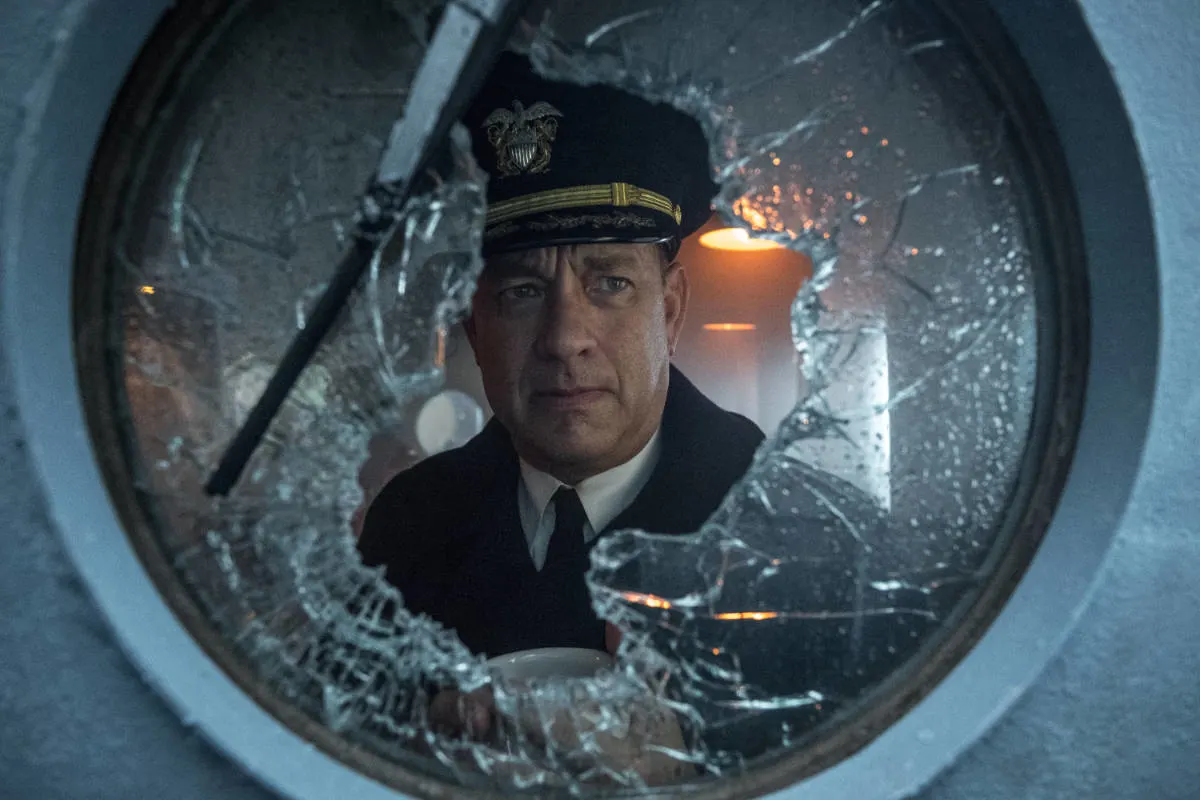
Greyhound – Greyhound may be the one film on this list that doesn’t belong. While the others (to one degree or another) were small films given a chance at the sunlight larger releases obscure, Greyhound is as classic a piece of studio filmmaking as you can get.
A Tom Hanks-written vehicle about the tribulations of destroyers working as convoy escorts among submarine-infested waters during the heights of World War II, Greyhound is everything good about studio filmmaking which gets tossed out with the bathwater when decrying its franchise films and award bait attempts.
Hanks himself stars as Commander Ernest Krause and his near real-time crossing of the most dangerous stretch of the Atlantic in ninety real-time minutes. Shorn of much in the way of dialogue, plot, or character, Greyhound is a pure experience in the way only cinema manages. In that way it doesn’t need any of the other pieces, it doesn’t need to suggest or describe what war was and is and what it does to the people involved, it simply exposes us to it. Like a grey ship splashing among grey waves, Greyhound was lost within the hustle and bustle of the summer that wasn’t. Now is the time to find it.
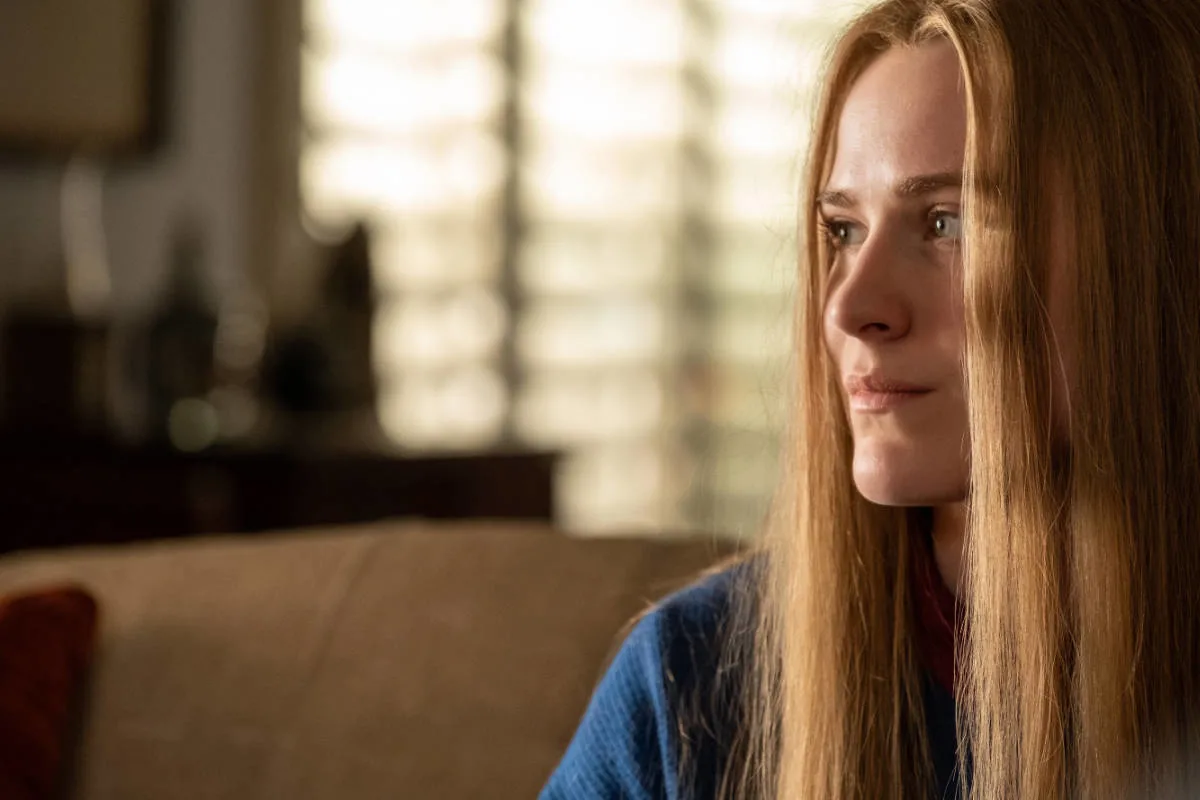
Kajillionaire – In some ways, films like Kajillionaire are the encapsulations of independent iconoclassicism – quirky creations of their creator’s id-making choices mainstream films would never attempt. In other ways, they are a dime a dozen on the independent circuit as whimsy and quirks overcome character and theme to create a whole that is less than the sum of its parts.
Kajillionaire certainly has the quirky part down, following a trio of scam artists who refuse to live by society’s rules. Instead, they choose to live only on what they can lie, cheat, or steal out of the world (and they spend nights living in an abandoned office that periodically floods with the soap overrun from the next-door soap factory).
It would be easy to call it Kaufman-lite, but for the tinge of truth attached to all of the damaged people at Kajillionaire’s core and the way it is slowly pried from them by the arrival of Gina Rodriguez as the object of everyone’s desire. Sometimes, when films attempt this sort of thing, it comes across as artificial as it actually is. It becomes a crutch for the filmmaker to lean on in place of actual storytelling or characterization. In the right hands, however, it becomes not just part of the world but the key to understanding the characters, who they are, and why they do what they do.